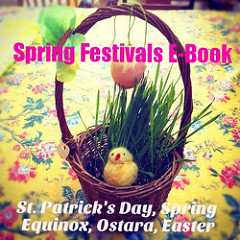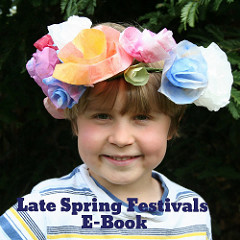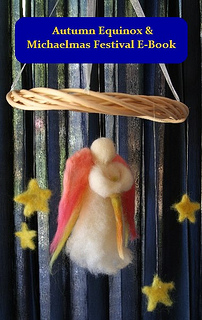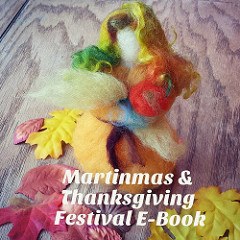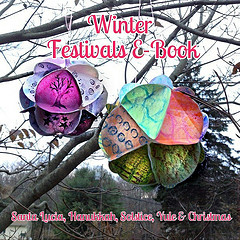Storytelling
This past weekend was totally fun. It was mostly family-oriented, as most of our time is.
Saturday morning I went to a lecture/class on storytelling for children. I listened to one of the area’s best storytellers/puppeteers (Karen Vianni) talk about how to tell stories to our kids, why we should do it, and what to tell. Storytelling is big in the Waldorf world, especially for the young child. It is preferred to reading books aloud because the child responds differently to a story that comes from within you, that you create, and because without a book to look at, he can make his own pictures in his head. That exercise is critical for children’s development. Picture-making is thought to be key to problem solving and creative thought.
Vianni says that parents ought not to believe that only traditional stories that have been memorized word-for-word are worthy of telling. Rather, parents should tell stories about the natural worls for stories from their own lives—that children are fascinated by what their parents were like as children, how they grew up, what they did, what grandma and grandpa did, etc.
Because I’m always the class blabbermouth, I mentioned that you don’t have to tell your kids only the exciting stories—the ones with the crisis and climax—for they are often too intense. Lucas doesn’t want to hear about how Little Girl Sara Got Trapped by the Snake and Couldn’t Get Home. It’s too scary! I learned that the hard way because I told that story to him when he was maybe three. I was used to the traditional dramatic structure that we all expect from our entertainment: exposition, rising action, climax, falling action, then denouement or catastrophe. I thought I had to make it exciting for him. “Please, don’t” was basically the reaction I got.
I’ve been practicing a little here and a little there for a few years now. I don’t do it all the time, but I do it now a lot more often. I started telling Lucas stories that are more about everyday things, like about going to school as a child or picking oranges off our tree in the backyard with my brother, or special things like when I came home from school and my mother had all the ingredients for making cookies out on the table and ready to go. You know, stories that are pictures of life—pretty similar to the way Lucas lives, but with small differences that are interesting to him.
I also tell him stories about his own life, about things that happened last year or even yesterday. I don’t actually name the characters (us), but just say things like “there was a mommy, a daddy, a big brother, and a baby brother” and take it from there. And often when I’m finished telling the story, he says with great warmth in his voice, “Mommy, that was a story about me, wasn’t it.” And I say, “Yes, dear. It was.”
I’m not an educator or an expert in child development, so I don’t really know how memory works in children his age, but I do know that Lucas is old enough to remember things from his own life now. I hope that by telling him about things that happen in our lives—mostly happy, everyday things—perhaps somehow these events and feelings will sink deeply into his psyche and slosh around in his unconscious. I hope that from his own inner well of memories he will someday be able to pull stories of his own to tell his own children, or even to me in my dotage.













